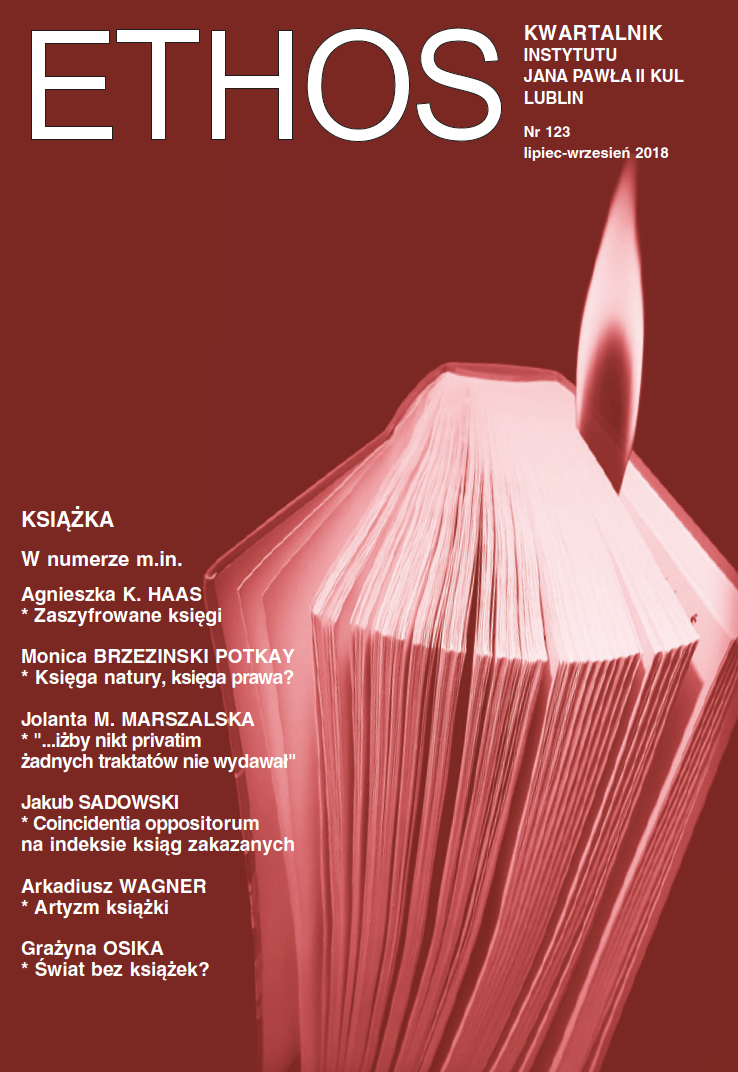ZASZYFROWANE KSIĘGI. Topos książki w prozie niemieckiego romantyzmu a problem samoświadomości
On Coded Volumes: The Topos of Books in the Prose of German Romanticism and the Problem of Self-Consciousness
Author(s): Agnieszka K. HaasSubject(s): German Literature
Published by: Katolicki Uniwersytet Lubelski Jana Pawła II - Instytut Jana Pawła II, Wydział Filozofii
Keywords: the topos; 19th century German literature; Novalis; Friedrich Schlegel;Friedrich Wilhelm Joseph Schelling; Johann Gottlieb Fichte; the Bible; the absolute book; Ernst August Friedrich Klingemann; Bon
Summary/Abstract: The present article aims at demonstrating the link between the topos of books and its derivatives, such as writing, letters, or hieroglyphs, and the inner world of the characters representative of German literary fiction of the turn of the 19th century. The article attempts to address the question of whether books and their diverse forms (such as parchment, a folio volume or a scroll) function as coded mirrors of the human psyche, and whether books, like the ‘book of Nature,’ need decoding. The topos of books, despite its numerous shapes, refers the reader to a reality outside books, simultaneously demonstrating limitations of human cognition. Kant’s criticism, as well as Fichte’s subjective idealism, affected the way consciousness was approached and analyzed. The link between the motif of ‘book’ and epistemology, philosophical idealism, and in particular Kant’s, Schelling’s and Fichte’s transcendental philosophies, makes it clear why the topos of books occupies a predominant place in the output of German writers of the period of Romanticism. Fichte’s attempts to define ‘the absolute I’ and ‘the empirical I’ proved decisive for the turn to the consciousness in literature. Owing to his distinction between ‘the I’ and ‘the not-I,’ and his reduction of the world first to ‘the absolute I’ and subsequently to ‘the empirical I’ and the consciousness, narration enabled a synthesis of the reality, thus obliterating the limits of time and space as well as the distinction between the real and the imagined. A literary tool enabling an insight into oneself is ‘the book,’ which manifests both material and metaphysical signifi cance. The indeterminacy and subjectivity of the world depicted in the literary fiction of the time is reflected in the consciousness of the characters, in particular in the motif of an ‘opaque’ and confusing ‘book of life.’
Journal: Ethos. Kwartalnik Instytutu Jana Pawła II KUL
- Issue Year: 31/2018
- Issue No: 3
- Page Range: 45-73
- Page Count: 29
- Language: Polish
- Content File-PDF

